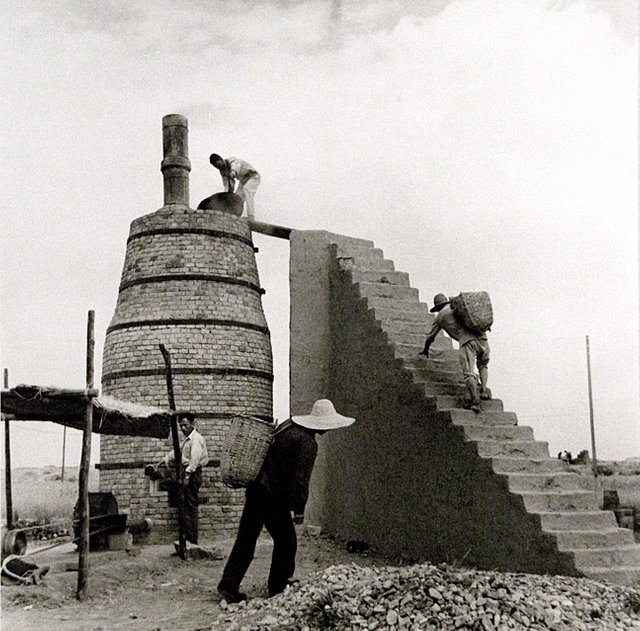Recently I have been seeing people raging about how globalization and interconnectivity of economies has done more harm than it has good for us as a human race. I completely and strongly disagree with this point, which I will most likely talk about in depth tomorrow, but today I want to talk about the basics and how specialization in economies has benefitted us in almost every way possible. Because the fact of the matter is, everything you purchase in your day to day life is a product of specialization.

In layman’s terms, specialization is basically the focus on producing one or a few goods and becoming very good at doing so. In the old days when there was little trade and no one had something you desired, you had to collect everything yourself. If you wanted to make a burger per se, you would have to collect the wheat, make the dough for the bun, butcher the cow, ect. all for a single meal. There is a reason I picked a burger, because I person actually did this as a test and ill link the video below to prove my point. However, now we can just walk into any supermarket and buy the buns, patties , condiments or whatever, not to mention full burgers that are already made to be microwaved.
What happens is each part of our economy has focused on doing what it is good at and trade for things they aren’t specialized in making. Using a common currency like the dollar those who have specialized in making a certain good now produce more of it at a higher quality because they have done it for so long and can sell the excess which they can use to purchase other goods. Because of specialization we have an economy of surplus of high quality goods at our finger tips. Even if you specialize in something like knowledge, you are paid in dollars and can purchase anything you need.
Specialization can be something that is within a single country’s economy or within the international trade economy as a whole. For example Italians export olive oil, France exports wine, ect. These countries are much better at producing those items on a mass scale because of their location, knowledge, ect that we are better off specializing in other products and purchasing theirs. Making our own olive oil or wine in some areas might be foolish and not worth the effort. Instead the best option for us is to export our own specialized goods to other countries who desire them and to purchase their higher quality items.
China during the cultural revolution proved the importance of specialization when they recommended that everyone stop farming and instead create their own backyard steel mills. Despite regular people not having the knowhow or specialization for creating steel, they did it anyway and were left with a lack of rice which lead to the starvation of 10s of millions of people. The steel that was created was also of such low quality almost nothing could be done with it. If China had let the farmers who were specialized in food production, create food, those people might not have died. Instead we have a much darker history.

We as a country and even as individuals, need to do what we are best at and specialize in certain skills that bring us the most return in the long run. If that means we need to move manufacturing out of our country and instead only export knowledge, then we should do so. Failure to continue to create specialized goods that people want in the international community is how a country starts failing. So to the people that believe we should keep all the jobs in America even if it means that we would be more profitable by specializing in another field, tomorrows article is for you. For today I just wanted to go over the basis of specialization, how we encounter it in everyday life and how it has benefited us in the long term. There are millions of examples of the benefits of specialization, I just wanted to show a few.
-Calaber24p
If I remember well, it was Bergson who had a major talk about the subject when he became dean of the university he had just been hired by. To underline the main point of his thoughts on the subject, he brought about the difficulties rising surrounding the advent of today modernization, both technologically and on a communication level as well, where specialization can easily become a great danger to us all when we don't have a clear image of where we come from as well as the purpose or end goal of this specialization within the broader process in which it takes place. The world we are now living in is so specialized that even within one realm of knowledge, i.e. astrophysics & nuclear physics for instance, one can hardly connect the dots relating the two! On the communication level, one branch of a specific office may have absolutely no idea what the other branch is doing as the people from one office may very well not even be allowed to discuss the matters the others are working on leaving a gap of the knowledge of purpose to the managers... This in return, may too easily grow into either secrecy or lunacy and we find ourselves be lead by an almost invisible hand toward knows-who.
It is extremely important to try to strengthen our communities by being the best we can be within our own realm, yet, it is also critically important for us to know the purpose of our own action in relation to the goal of our work together. As much as there is obvious reasons underlining the importance and benefit of specialization, yet I would have to argue that it is even more important to keep in sight what is the purpose and end goal of this specialization, what is its worth to sustain life? Namaste :)
Downvoting a post can decrease pending rewards and make it less visible. Common reasons:
Submit
Let me offer a different perspective.
Specialization brought a lot of modern "disease", be it social or actual health diseases. The best example this can be seen is our movement. We used to be able to do everything to an extent. climb, run, squat to pick berries, crouch, etc. And we were very healthy because of this generalist approach. Now, we have professional athletes that specialize. Let's take an ultra-marathon runner as an example. If he is one of the best, he specializes so it is safe to say (with current general knowledge people train by - that is actually not the best approach ) that most things he does are related to endurance running. So he will not be that great and quick jumps, or springing, or lifting heavy objects. In fact, he would probably be shit at those things.
Now, he is one of the best so he gets lots of resources (AKA Money). But he sacrifices the fact that all he does is one thing and therefore limits his human experience to that one thing.
On top of that, he's ruining his health as all he does is one type of movement which puts constant and same pressure on his joints and the body. Any repeated motion over long period of time is just deterring to the body.
I could go more into this and bring in also "tribe psychology", etc. but I think this will serve at least as one example.
Though I am not saying that specialization is EVIL. But we should ask ourselves, do we want to?
Do we want to do just one thing in our life and limit our human experience to that? Do we reallly need to be the best?
Also, as promised, here's an article I said I'd write and link you.
Traveler Trying To Fit Back In How Do You Meet New People And Make Make New Friends Efficiently Without Much Of An Effort --- by @joewantsfreedom
Downvoting a post can decrease pending rewards and make it less visible. Common reasons:
Submit
Specialization is for insects...and robots.
Robots will, and are, replacing specialists.
In the near future the only thing left for humans to do will be that which requires original thought and creativity...everything else will be automated, and most likely decentralized.
The wide spread use of 3d printing is an example. Soon it will be possible to download a 'plan'....for almost anything...then print it out on your own 3d printer. Much like text can be printed today...much like music and videos...today.
today 3d printers are in their embryonic stages. Embryos grow.
Downvoting a post can decrease pending rewards and make it less visible. Common reasons:
Submit
I don't think that globalization or specialization are inherently bad; the problem is that politicians are pushing the process in ways that free markets will not sustain, and that are damaging the economies involved.
I'll start that I have a bias in that I believe the politicians pushing the globalization agenda are doing so dishonestly and for rent-seeking, do-gooding, or both, motives.
Two examples in America - the mass importation of illegals has a negative affect on American employment, especially when are exporting tech jobs overeas and already have a high population of welfare clients: also, the Corker deal to help the Iranians build a nuclear bomb, or as the globalists would have it, a "nuclear power program", ignores the security risks that giving Twelfer lunatics nukes in order to create baksheesh opportunities for the businesses that the globalists have financial interests in.
True and effective globalization will succeed when economies and nations can sustain them safely; right now it's just kickback and moral pomposity for politicians who think we are serfs to profit by.
Downvoting a post can decrease pending rewards and make it less visible. Common reasons:
Submit
This post has been ranked within the top 25 most undervalued posts in the second half of Dec 19. We estimate that this post is undervalued by $11.37 as compared to a scenario in which every voter had an equal say.
See the full rankings and details in The Daily Tribune: Dec 19 - Part II. You can also read about some of our methodology, data analysis and technical details in our initial post.
If you are the author and would prefer not to receive these comments, simply reply "Stop" to this comment.
Downvoting a post can decrease pending rewards and make it less visible. Common reasons:
Submit
Not bad!
Downvoting a post can decrease pending rewards and make it less visible. Common reasons:
Submit
Hi @calaber24p
Nice post
Downvoting a post can decrease pending rewards and make it less visible. Common reasons:
Submit
Thirty years ago when I was in high school and everyone felt comfortable in Reaganomics, the U.S. was producing and manufacturing, and we still had specialty stores, my high school business teacher told us that America would become a country who no longer manufactures and the specialty stores would be eaten by giants. At that time most of us 14-15 years old's couldn't imagine because we had grown up in it.
Within 10 years, 1993/1994, there were WalMarts border to border, Sam's, and Costco. Mom and Pop stores died, specialty stores disappeared, and manufacturing started going overseas.
We became a service industry - not a product industry and therefore uniqueness would be how we specialize.
We failed ourselves by not keeping manufacturing at home and having products to export. We gave product knowledge to other countries who became our competition with below market labor.
Downvoting a post can decrease pending rewards and make it less visible. Common reasons:
Submit